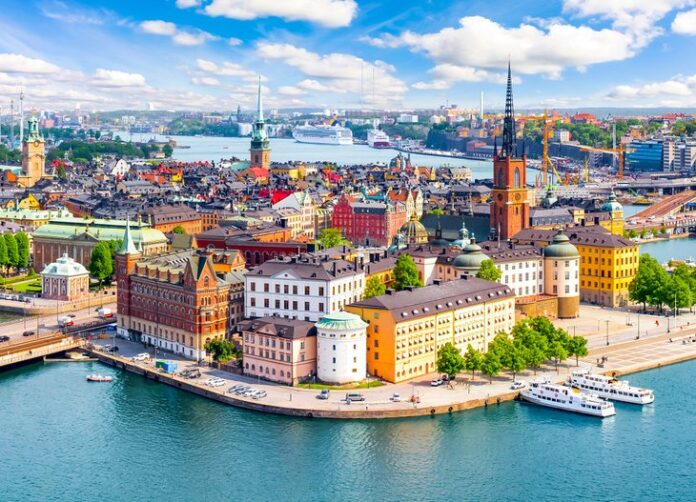Happiest countries with or without good immigration policies
By Jeph Ajobaju, Chief Copy Editor
Cape Verde, on the northern tip of West Africa in the Atlantic, seeks to cut off ties with Africa and join the European Union (EU), hoping to emulate Cyprus, by virtue of Cape Verdean colonial ties with Portugal.
Cape Verde comprises 10 islands and a multicultural population of 564,331 out of which 56 per cent are Africans and 44 per cent Europeans, with different hues of colour in between.
The country does not like Africans and routinely deports Nigerians and other people of colour. Yet some Nigerians speak Portuguese, obtain Cape Verdean citizenship, and live in the country, per reporting by PREMIUM TIMES.
Just to show how Nigerians with their doggedness can, and do, live in all countries all over the world – small and big – no matter how hostile the environment.
Nigerians are international migrants. Like Indians. Like the Chinese.
A survey by the World Bank published in July shows that about half of Nigerians, especially youth, are willing to leave the country for a better life, an increase of nearly 20 per cent since 2014.
That draws on another survey by Afro Barometer in 2018 showing that one in three Nigerians have considered emigration, most to find economic opportunity:
- More than one in three Nigerians (35 per cent) say they have considered emigration, including 11 per cent who say they have given “a lot” of thought to the idea.
- Respondents who have a post-secondary education (44 per cent), who live in cities (42 per cent), and who are younger than 35 (39 per cent) are especially likely to consider going abroad.
- Economic reasons dominate respondents’ motivations for emigration. Three-fourths of those who have considered emigration cite as the main reason finding work (35 per cent), escaping economic hardship/poverty (31 per cent), or pursuing better business prospects (10 per cent).
- The most popular destinations for Nigerians who have considered emigration are North America (32 per cent) and Europe (21 per cent). About one in five say they would go to Ghana (9 per cent), another country in West Africa (5 per cent), or somewhere else in Africa (6 per cent).
It is not entirely Muhammadu Buhari’s bad governance driving people abroad. Nigerians had been global immigrants long before he became President in 2015. His incompetence and cruelty only fuel the desire to get out of the country.
__________________________________________________________________
Related articles:
Canada grants permanent residency to 18,438 Nigerians
Nigerians can visit 20 countries without visa, 25 with visa-on-arrival
Wealthy Nigerians are buying overseas citizenship as plan B
Nigerians take up Caribbean citizenship to travel visa-free
__________________________________________________________________
Seven best countries for immigrants
However, if you are prospective emigrant, you need to articulate your priorities and pick a country that is best for you. Some countries are most welcoming to immigrants, others are the happiest even without good immigration policies.
Below are seven best countries most welcoming to immigrants, reported by Pulse.ng. They all have booming economies, progressive immigration policies and immigrant support services.
1. Sweden
Sweden has been ranked as the world’s best country for immigrants, ahead of Canada and Switzerland.
Sweden’s decision to take in large numbers of refugees has seen its society diversify as migrants account for about 10 per cent of its 9.8 million population.
2. Canada
Canada is a safe haven for many migrants. It is one of the most immigration-friendly nations in the world and is rated as one of the best countries to live in by the United Nations.
Canada is rich in natural and oil resources and has some of the best universities in the world. It has low crime and violence rate and a high standard of living.
All these make it a preferred destination for immigration.
3. UAE
The United Arab Emirates (UAE) is tax-free nation rich with oil, and has a very low crime rate. It attracts people from all over the world to become its residents as the country has a dynamic economy.
The country also boasts low corruption rate, making it a desirable destination for relocation.
4. Norway
Norway, a peaceful and pollution-free nation, is very welcoming. The wealthy nation offers free education in public universities.
Owing to the natural beauty of the land and the relaxed way of life, many people consider Norway as their immigration destination. The rules of immigration are not very strict.
5. Finland
If the peacefulness offered in Canada and Norway isn’t enough then you can’t get much better than Finland.
Finland is the safest country in the world and boasts one the world’s most liveable cities in its capital, Helsinki.
6. Spain
Spain comprises numerous semi-independent “communities” and the cultural influence of each has produced a country of diverse and dynamic population.
Immigrants come from Romania, Argentina, Ecuador, the United Kingdom, Germany, France, and Morocco.
The large and diverse patchwork of culture in Spain lures immigrants from all over the globe.
7. Australia
Australia, home to 26 million people, is a wealthy country with a major presence in international organisations, firm citizenship rights, opportunities for entrepreneurs, economic stability, and a large public service sector.
In addition to job availability, Australia has a huge English-speaking population, a safe environment, and a high level of happiness among its citizens.
World’s 10 happiest countries
Happiness is a difficult thing to measure, but one initiative at the United Nations has been trying to figure it out, writes Condé Nast Traveler.
Every year, the UN Sustainable Development Solutions Network publishes its World Happiness Report – a study that examines the connections between happiness and development, all while encouraging policymakers to place more emphasis on the former.
Around 1,000 people in each UN member state rate their quality of life on a scale from 0 to 10. Researchers cull data from six areas: GDP per capita, life expectancy, social support, trust and corruption, perceived freedom to make life decisions, and generosity.
The World Happiness Report 2021 was released earlier this year, and while the results follow previous trends (every Nordic country made the cut) – the list is a little more interesting amid the pandemic.
The report paid special attention to evaluate how different governments have dealt with the pandemic, and how trust in said governments is directly related to overall happiness.
Even though the top 10 list has remained virtually the same year over year, we still recommend checking out the full list below. Who knows? Maybe reading about these places will put a smile on your face today.
1. Finland
For the fourth year in a row, Finland is number one when it comes to happiness. The country consistently ranks among the top education systems in the world, occasionally beaten out by countries like South Korea, Japan, and Singapore.
Much of that success comes from a widespread reverence for teachers, who are required to have a master’s degree (their education is state-funded), and a pedagogical system that focuses less on quantitative testing and more on experiential learning and equal opportunity.
2. Denmark
Denmark remained in the number two spot this year.
It rates near the top in all the reported metrics – life expectancy, social support, and generosity among them – but it is also a country hugely committed to renewable energy production (39.1 per cent of its energy was wind-generated in 2014).
Home to the world’s most bike-friendly city and a coastline that you could spend a lifetime exploring, the country’s happiness certainly comes in part from a respect for the planet it’s built on.
But a recent study from the Copenhagen-based Happiness Research Institute (whose existence is probably reason enough for a top spot) narrows down Denmark’s happiness to a number of different categories, including trust in the government, economic security, freedom, civil participation, and work-life balance.
3. Switzerland
Switzerland (which moved up three spots this year) is a country where everything is voted on, from how many vacation days workers should have to how many immigrants should be allowed into the country, and referendums down to the local level happen many times a year.
This system of direct democracy means that Swiss citizens feel an unparalleled sense of participation in their country’s evolution, from landmark decisions on human rights to whether a new traffic light should be installed in their neighborhood.
The Swiss are known to be insular, and it can be off-putting to first-time visitors, but there is a strong social fabric held together by a belief that every voice matters, which can go a long way toward feeling content.
4. Iceland
Iceland ranks high in terms of the proportion of respondents who said they felt like they had a fellow citizen to count on when the going gets rough.
This perhaps became most obvious in the wake of the country’s post-2007 financial collapse and subsequent revitalisation.
You’d think that the perpetual flood of American tourists into Reykjavik might have dealt a blow to the residents’ happiness – it’s got to be a little harder to get that dinner reservation than it used to be, after all – but when it comes to well-being, the Icelanders are unfazed.
Perhaps it has something to do with the fact that they can always escape the city to a countryside that looks like another planet.
5. The Netherlands
The biggest stat from the Netherlands this year? That its happiness levels have barely changed (we’re talking less than 0.03 per cent) between 2005 and 2020. And in the Netherlands, it turns out, happiness starts young.
A 2013 Unicef report rated Dutch children the happiest in the world, based on a number of metrics related to educational well-being, safety, and health.
Vincent van Gogh was the exception, not the rule.
6. Norway
Norway has been dropping in this ranking since 2017, when it held the top spot, and this year it comes in as the sixth-happiest country in the world. But there’s not too much to complain about.
The mix of a well-integrated government welfare system and a thriving economy built on responsible management of its natural resources (good riddance, fossil fuel-powered cars) means that very few are left behind, and the feelings of social support, trust in government, and economic well-being that come from that all contribute to overall happiness.
7. Sweden
This year, Sweden remained in the seventh spot. A high GDP per capita, which it shares with many of its Nordic neighbors, is not the sole reason, either:
- An emphasis on social equality that is built into the education system starting in kindergarten
- 16 months of paid family leave that can be split between a couple after a new child is welcomed into a family, and
- free day care also make Sweden the best country for women, according to a separate study.
Basically, an emphasis on work-life balance leads to a happier populace.
8. Luxembourg
Luxembourg made quite the upward leap – from 14th to 10th – bumping top 10 darlings Canada and Australia down a few pegs.
With a population under 600,000, the small country offers high salaries and a strong social security system to help its citizens after retirement.
But before you jump to the conclusion that money is actually buying happiness in Luxembourg, the country has many other perks that have nothing to do with cash, including a great healthcare system and excellent work-life balance (probably due to the mandatory five weeks of vacation time).
9. New Zealand
Sure to fuel an already burning rivalry, New Zealand beat its neighbor Australia, who didn’t even make the top 10, this year.
Condé Nast Traveler readers say, year after year, that Kiwis are a warm, welcoming bunch, but according to the UN’s research, a lot of that comes from satisfaction not only when they’re out and about, but also in the workplace.
We would guess the country’s vast natural wealth – its beaches, vineyards, and mountains – plays a role, too.
10. Austria
Austria made the cut this year with high scores in life expectancy and GDP per capita.
One main takeaway from the institute’s continuing research is that if you want to be happy, the first step is to stop stressing about how happy you are and go for a bike ride.
Biking is one of our favorite ways to get around Austria (well, at least its wine country), so we suspect riding might help out with happiness rankings. (Need further proof? Just check out the No. 2 spot.)














